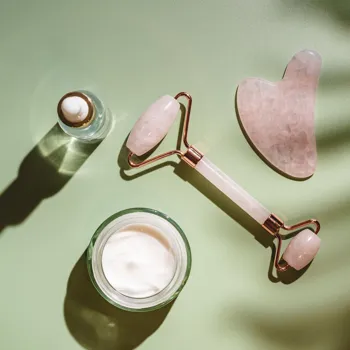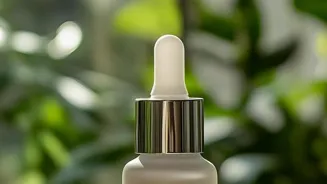Discover how stress impacts your skin & practical tips to maintain a radiant complexion in a hectic world. Read more
Modern life, especially in bustling India, often feels like a non-stop marathon. Between
chasing deadlines at work, managing family responsibilities, navigating crowded commutes, and keeping up with social commitments, stress has become an unwanted but constant companion for many.
While we often focus on the mental and emotional toll of stress, it's crucial to remember that it also significantly impacts our physical health, and one of the most visible areas affected is our skin.
From sudden breakouts to dullness and increased sensitivity, stress can wreak havoc on your complexion.
This article dives deep into the connection between stress and skin issues, offering practical tips and tricks to manage stress and maintain a healthy, glowing visage, even when life throws curveballs your way.
Let's explore how to reclaim your radiance and embrace a more stress-free approach to skincare.
Stress triggers skin issues due to excess cortisol production
Stress triggers a cascade of hormonal responses in our body. When we're under pressure, our adrenal glands release cortisol, often dubbed the "stress hormone.

" While cortisol plays a vital role in regulating various bodily functions, including blood sugar levels and metabolism, its excessive production can be detrimental to the skin. Elevated cortisol levels can increase sebum production, the oily substance that lubricates our skin.
This excess sebum, coupled with dead skin cells and bacteria, can clog pores, leading to the formation of pimples, blackheads, and whiteheads. Moreover, stress can disrupt the skin's natural barrier function, making it more susceptible to irritation, inflammation, and infections.
Those with pre-existing skin conditions like eczema, psoriasis, and rosacea may find their symptoms exacerbated during stressful periods. It's like the skin is shouting for your attention, begging you to take a breather and find ways to calm down.
Stress weakens immunity, impacting skin health & healing
Beyond the hormonal impact, stress can also weaken our immune system. A compromised immune system struggles to fight off harmful bacteria and viruses, making us more prone to skin infections and slower healing. Ever noticed how cuts and scrapes seem to take longer to heal when you're stressed?
That's your immune system taking a hit. Stress can also lead to poor lifestyle choices that further impact our skin. For instance, when feeling overwhelmed, many people tend to skimp on sleep, indulge in processed or sugary foods, and neglect their skincare routine.
These habits can further contribute to inflammation, dehydration, and a dull complexion. Think of it as a domino effect: stress triggers a hormonal response, weakens the immune system, and leads to unhealthy lifestyle choices, all of which collectively conspire to negatively affect the skin.
Manage stress for radiant skin: prioritize activities, get enough sleep
Now that we understand the detrimental effects of stress on our skin, let's explore practical strategies to manage stress and keep your complexion radiant, irrespective of life's challenges. Firstly, prioritize stress-reducing activities that resonate with you.
This could be anything from practicing yoga and meditation to spending time in nature, listening to music, or engaging in a hobby you enjoy. Even a short 15-minute walk in a park can do wonders for your stress levels and mental well-being.
Remember, self-care is not selfish; it's essential for maintaining both your mental and physical health. Secondly, ensure you get enough sleep. Aim for at least 7-8 hours of quality sleep each night, as sleep deprivation can exacerbate stress and worsen skin conditions.
Establish a regular sleep schedule, create a relaxing bedtime routine, and make sure your bedroom is dark, quiet, and cool.
Maintain healthy skin with diet and skincare routine
Thirdly, pay attention to your diet. Avoid processed foods, sugary drinks, and excessive caffeine, as these can trigger inflammation and worsen breakouts. Instead, focus on consuming a balanced diet rich in fruits, vegetables, whole grains, and lean protein.

These foods provide essential nutrients that support healthy skin and boost your immune system.
For example, foods rich in antioxidants, such as berries and leafy greens, can help protect your skin from damage caused by free radicals, unstable molecules that can contribute to aging and inflammation. Fourthly, establish a consistent and gentle skincare routine.
Choose products that are specifically formulated for your skin type and avoid harsh ingredients that can strip your skin of its natural oils. Cleanse your face twice a day, exfoliate gently once or twice a week, and moisturize regularly.
Seek professional help for stress management, prioritize self-care
Finally, don't hesitate to seek professional help if you're struggling to manage your stress levels. A therapist or counselor can provide you with coping strategies and techniques to navigate challenging situations and improve your overall well-being.

Remember, seeking help is a sign of strength, not weakness. Managing stress is not just about achieving flawless skin; it's about taking care of your overall health and well-being.
By incorporating these stress-busting strategies into your daily life, you can cultivate a more balanced and resilient approach to dealing with life's challenges, allowing your inner radiance to shine through, reflected in a healthy and glowing complexion.
So, take a deep breath, prioritize self-care, and embrace the journey towards a more stress-free and radiant you.
AI Generated Content. Glance/InMobi shall have no liability for the content













